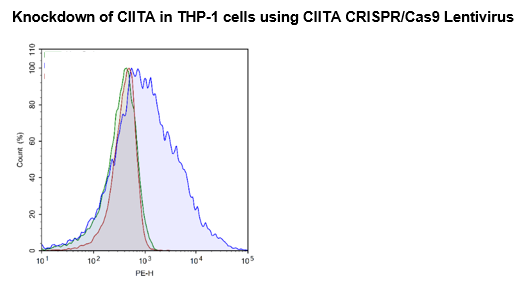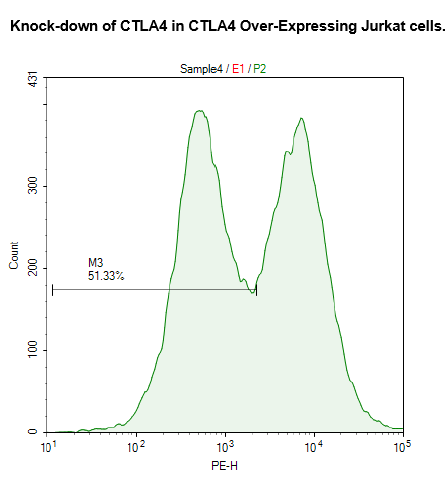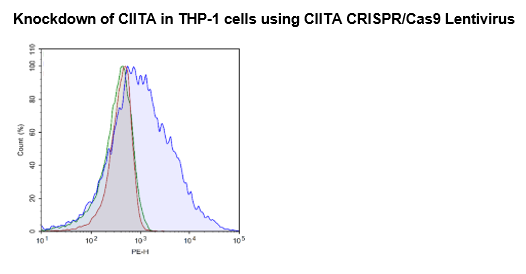
CIITA (Human) CRISPR/Cas9 Lentivirus (Non-integrating)
78434
Product group Molecular Biology
Overview
- SupplierBPS Bioscience
- Product NameCIITA (Human) CRISPR/Cas9 Lentivirus (Non-integrating)
- Delivery Days Customer7
- CertificationResearch Use Only
- Hazard Informationun3373
- Scientific DescriptionCIITA (class II major histocompatibility complex transactivator) acts as a coactivator for MHC (major histocompatibility complex) class II-specific gene expression and negatively regulates the IL-4 gene promoter during T cell differentiation. IFN-gamma (interferon-gamma) induces CIITA gene expression via Janus kinase 1) and Stat1 (Signal transducer and activator of transcription 1) pathways. The GTP-binding and acidic, proline-serine threonine-rich regions appear to be required for CIITA activity. Defects of CIITA has been implicated as causes of bare lymphocyte syndrome (BLS), which is characterized by the absence of MHC class II transcription and severe immunodeficiencies. The CIITA CRISPR/Cas9 Lentiviruses are replication incompetent, HIV-based, VSV-G pseudotyped lentiviral particles that are ready to infect almost all types of mammalian cells, including primary and non-dividing cells. The particles contain a CRISPR/Cas9 gene driven by an EF1a promoter, along with 5 sgRNA (single guide RNAs) targeting human CIITA driven by a U6 promoter. Unlike CIITA CRISPR/Cas9 Lentivirus (Integrating) (BPS Bioscience #78435), the CIITA CRISPR/Cas9 Lentivirus (Non-Integrating) is made with a mutated Integrase, resulting in only transient expression of the Cas9 and CIITA targeting sgRNA. This transient expression minimizes potential off-target effects caused by either prolonged expression or random integration of Cas9 and the sgRNA. A short round of puromycin selection right after transduction may increase knockout efficiency, however puromycin should not be used for more than 48 hours post-transduction due to the transient nature of expression using the non-integrating lentivirus.
- Storage Instruction-80°C
- UNSPSC41115812





